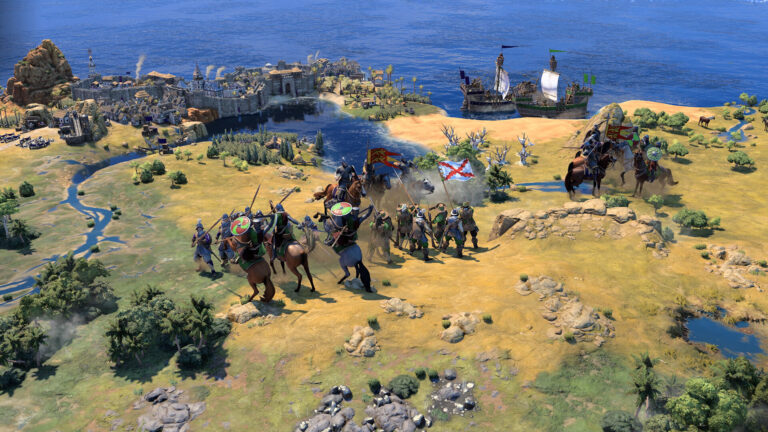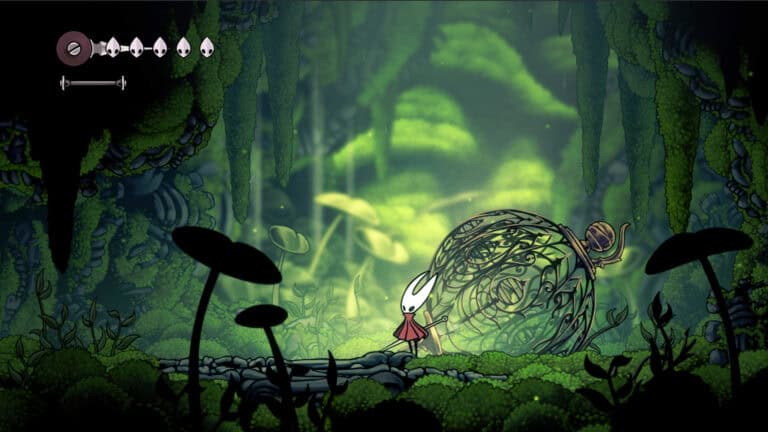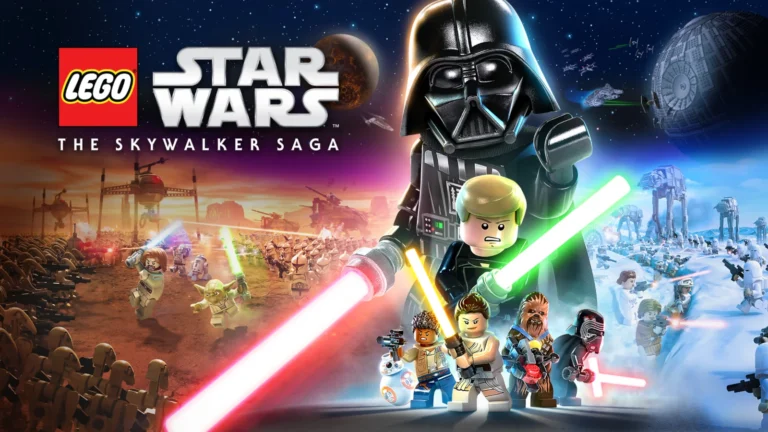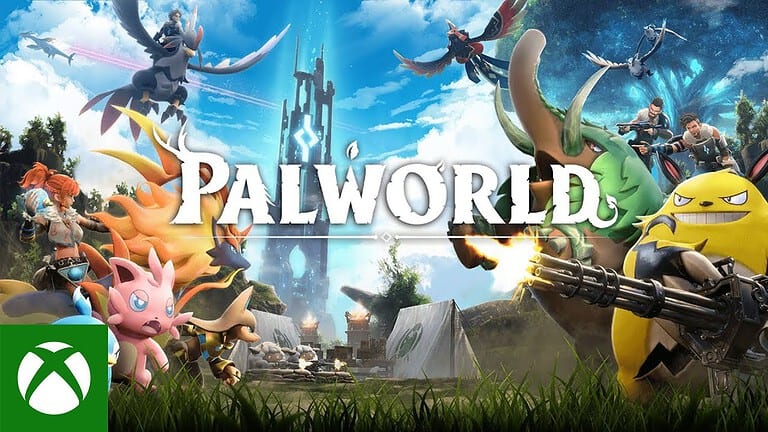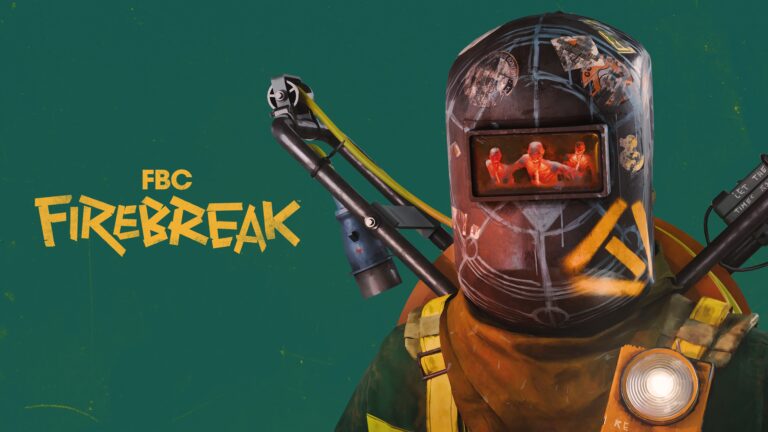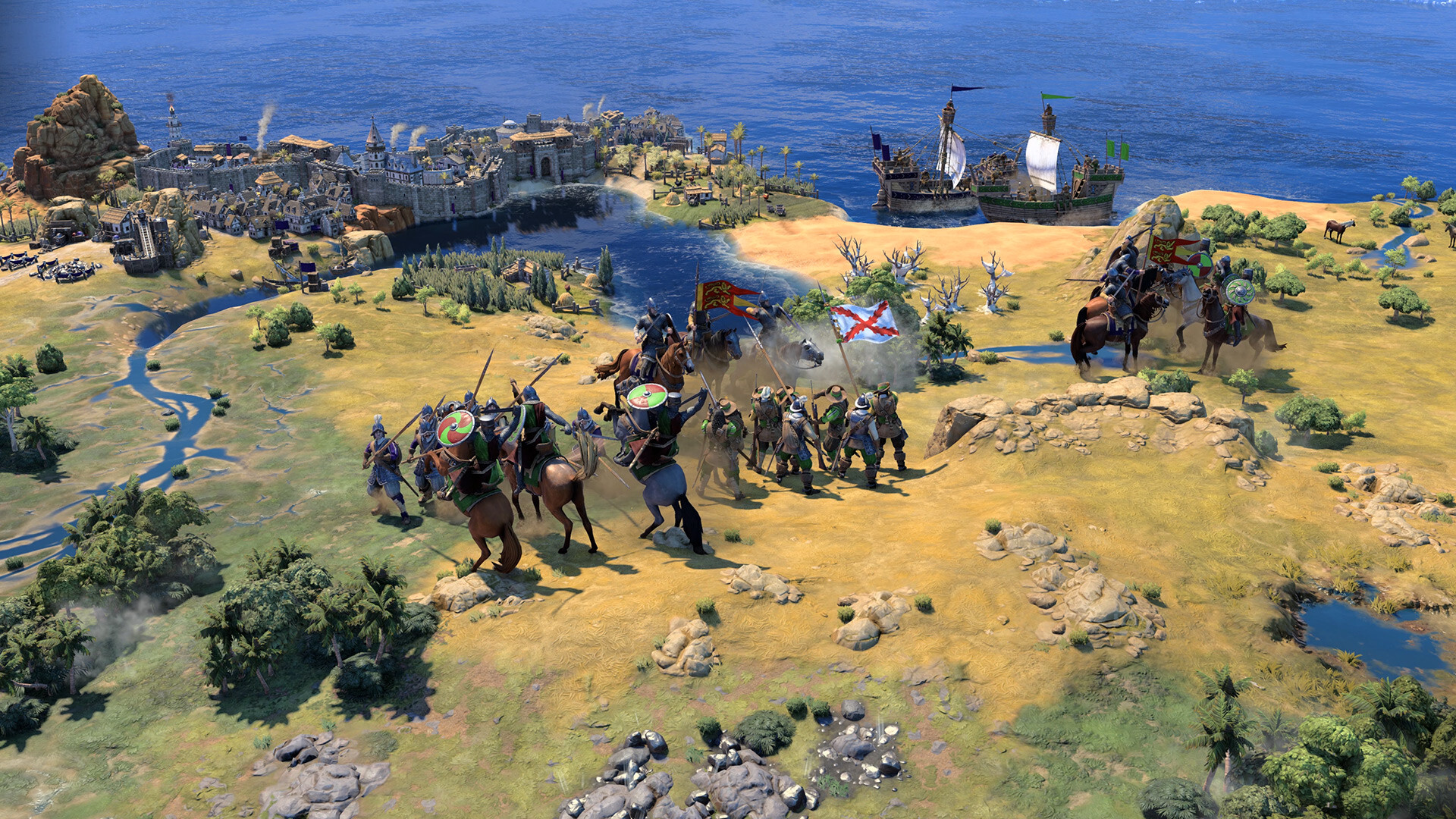
Civilization VII has opened up to mixed/negative reviews from its most dedicated fan base of pre-ordered players, with one aspect of the game standing out the most: a terrible UI. Fans are complaining all over about the changes to the user interface and how difficult they’ve made the game to play. The interface is so bad that most think the dev team should have addressed it, but at this point, it might be too late.
Besides demanding a complete UI overhaul, players also are saying the game is clearly undeveloped and needs refinement. Early access to the game opened up on February 6, 2025 and the full release for Civ 7 will be on February 11, 2025. It’s possible they could release a patch or update in the near future to address complaints, but so far we haven’t heard anything from the team behind the game.
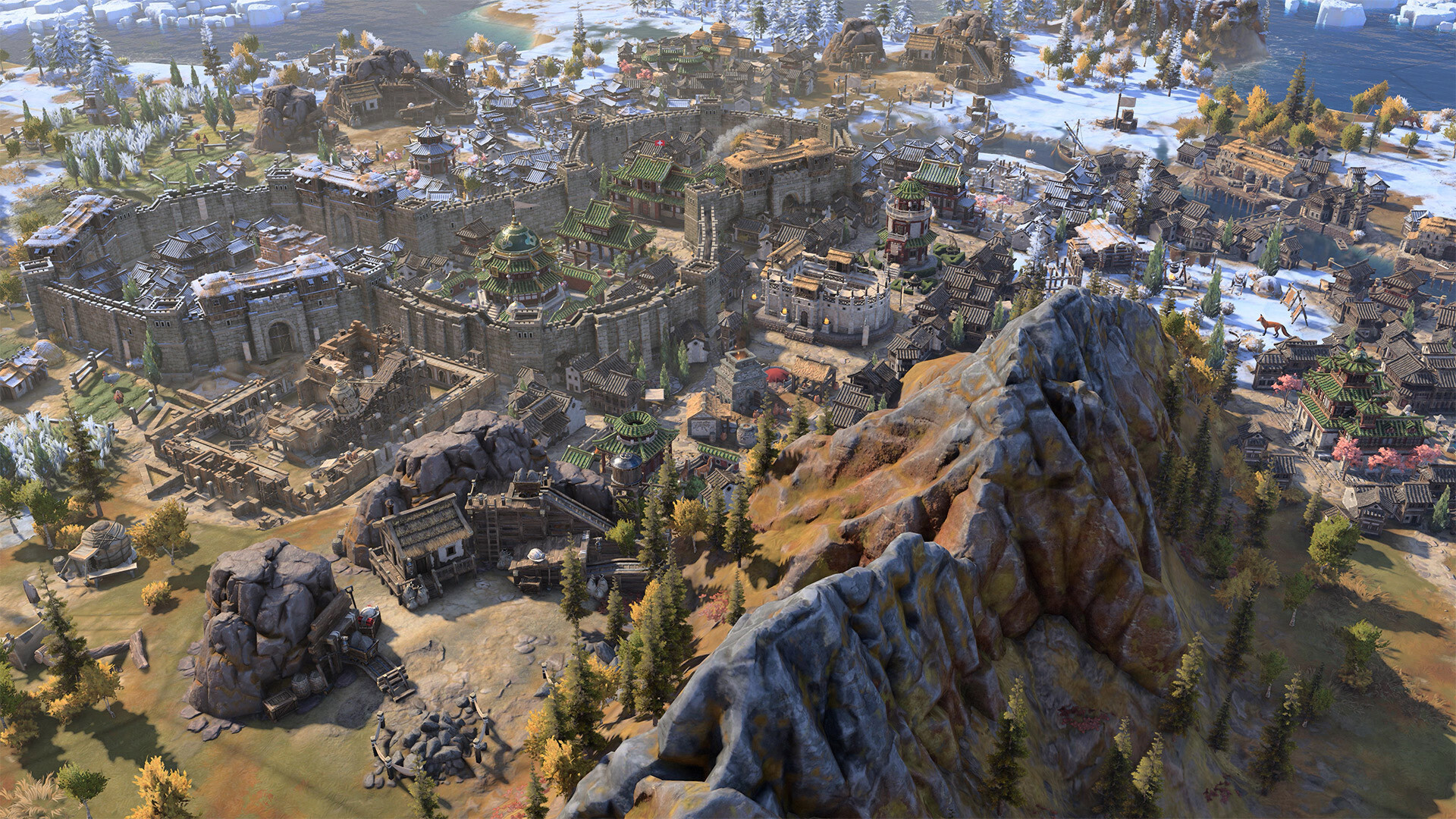
The latest entry in this legendary strategy series has entered early access, garnering surprisingly negative reactions from its player base. Steam reviews indicate that only 40% of the approximately 1,700 ratings are positive, which highlights significant concerns about the game’s current state.
Many players have reported that the game feels rough and unpolished, pointing to issues with the user interface (UI) and expressing the belief that the game was released unfinished. Common complaints include an unintuitive UI and the absence of core features found in previous titles.
One particularly controversial aspect of Civilization VII’s launch is the transition between historical epochs, where wars abruptly end, and armies partially disappear as players progress through different eras. Although the game introduces streamlined systems and new design choices aimed at making the series more accessible, such as a simplified city information view and unique leader abilities—like Harriet Tubman’s enhanced war support mechanisms during multiplayer conflicts—these changes have not satisfied many players.
Early Access Feedback and Civilization VII’s Future
The buzz around Civilization VII includes some negative feedback. Players with early access are highlighting serious problems that could affect the game’s success. While there are exciting new features, a confusing user interface and missing key elements are causing frustration. The big question now is whether the developers can fix these issues before the full launch.
The UI Problem
The biggest issue popping up in Civilization VII‘s early access reviews is the user interface (UI). Players are calling it clunky and hard to use. It’s tough to find key information, and menus feel awkward. Some reviewers even think it looks like a console port, not something designed for PC gamers. This UI trouble is making it hard for people to enjoy the new game mechanics.
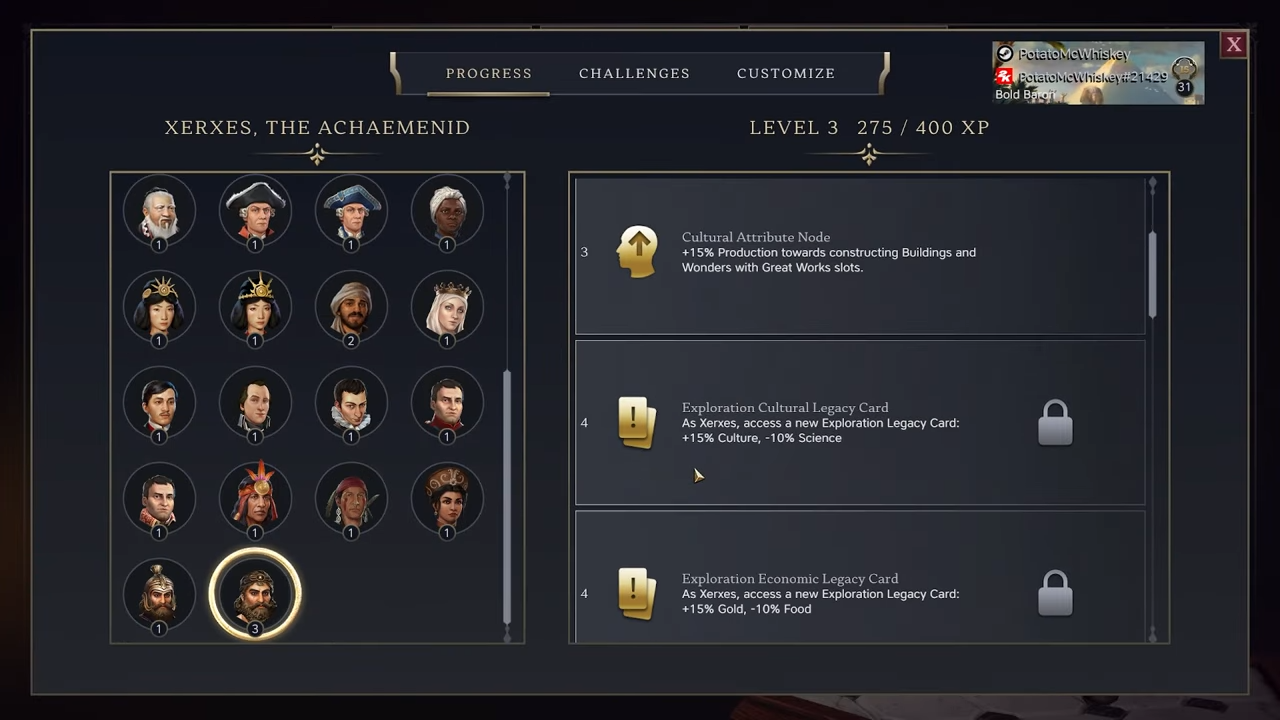
Missing Pieces
Beyond the UI, players are surprised by what’s missing. Basic features that have been in past Civilization games are just gone. Things like queuing up techs, quick unit movement, and customizing maps are absent. You can’t even rename your cities, which is a small thing, but it bothers some players. These missing pieces make the game feel unfinished, even for an early access version.
New Ideas, Mixed Reactions
Civilization VII does bring some fresh ideas to the table. The new commander system and changes to city growth are getting some positive attention. But even with these cool additions, the UI problems and missing features are overshadowing everything else. The leader/civilization combo system is also sparking debate. Some like the freedom, others find it historically jarring.
What Players Are Saying
Here’s a quick look at what players are saying:
| Reviewer | Rating | Key Comment |
|---|---|---|
| Cool CGI Dog | Not Recommended | “The UI is total slop… There is no discernible aspect of care put into the game.” |
| Lathium | Not Recommended | “The negatives that should *never* be sacrificed are: UI for PC… Narrow selection of Map types…” |
| Silverlight | Recommended | “This reminds me of Civ 5… The new soundtrack is very good.” |
| Nigerian Prince | Recommended | “My first impression is generally positive… However, whoever designed the UI deserves to be tried in The Hague.” |
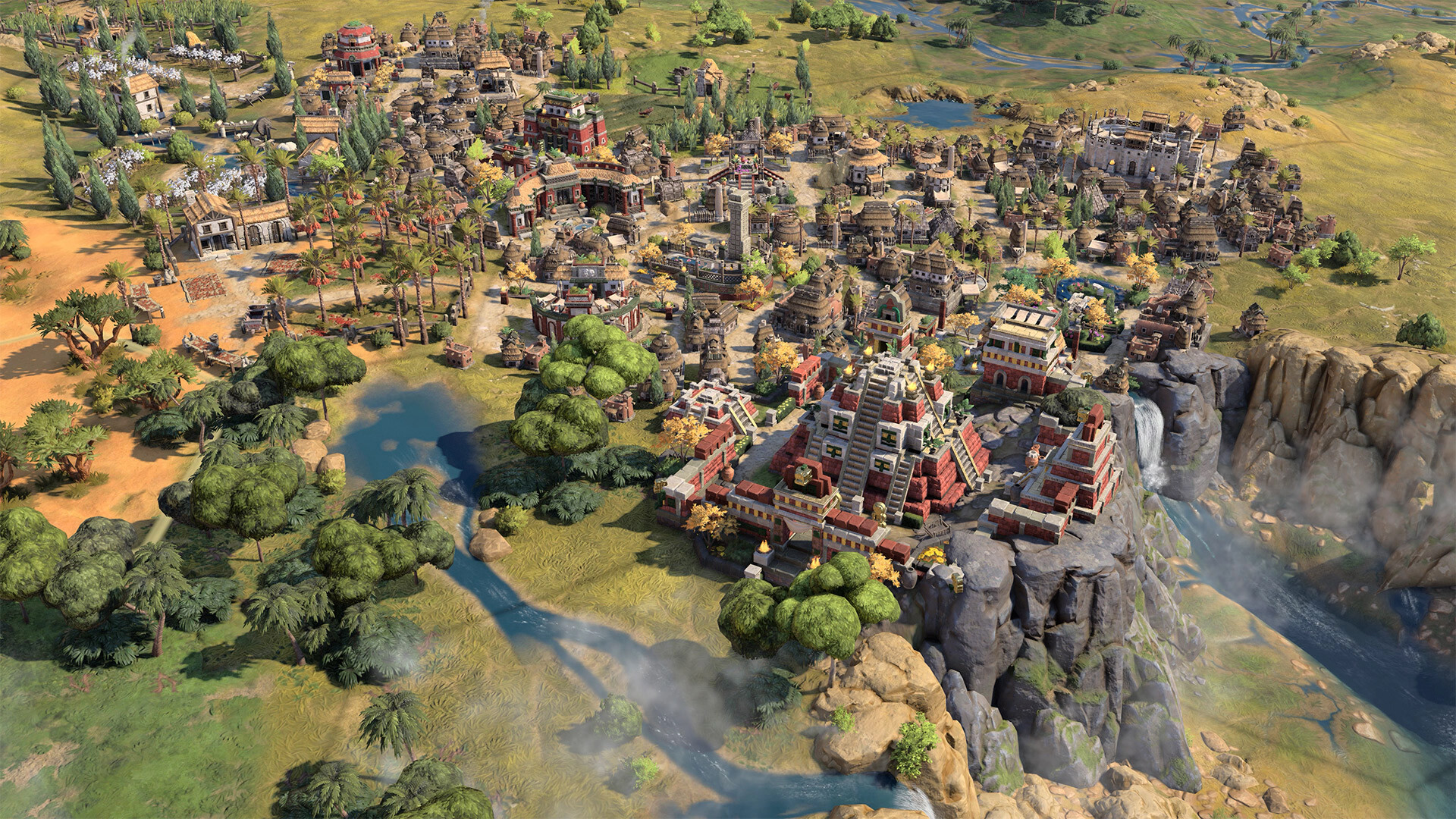
Hope for the Future?
It’s still early days for Civilization VII. Firaxis has time to fix these problems before the full release. If they can improve the UI and add back those missing features, the game could still be a hit. The core gameplay seems solid, and there’s definitely potential. The developers have responded to some reviews, which is a good sign. Whether they can deliver on the needed changes remains to be seen.
Key Takeaways
- Initial Steam reviews indicate significant player dissatisfaction with only 40% positive ratings
- New epoch transition mechanics and UI changes face criticism from veteran players
- The game emphasizes accessibility through streamlined systems and simplified mechanics
Overview of Sid Meier’s Civilization VII
Sid Meier’s Civilization VII introduces significant changes to the classic 4X strategy formula with its three-age structure and revamped diplomatic systems. The game launches in early access on February 11, 2025, bringing both innovations and technical challenges to the long-running series.
Gameplay and Core Mechanics
The game divides gameplay into three distinct periods: the Age of Antiquity, Age of Exploration, and Modern Age. Each age features unique mechanics and victory conditions.
Players guide their civilization through technological advancement, cultural growth, and military conquest. The turn-based strategy remains the foundation, with city management and resource allocation at its core.
Resource management has been streamlined, with clearer visual indicators for production and growth. The diplomacy system now includes more detailed relationship tracking between civilizations.
New Features and Changes
The new three-age system marks the biggest departure from previous titles. Each transition between ages triggers significant gameplay shifts and new strategic options.
Key Additions:
- Dynamic leader personalities that evolve based on game events
- Expanded diplomatic options with multi-party agreements
- Real-time weather systems affecting gameplay
- Improved AI decision-making for city development
The Civilopedia has been redesigned with an interactive interface that tracks player discoveries and achievements.
Comparative Analysis to Sid Meier’s Civilization VI
Civilization VII maintains core elements while introducing substantial changes to the formula. The UI redesign simplifies information display but has faced criticism for removing some detailed statistics.
Major Differences:
- Simplified district system compared to Civ VI
- More fluid diplomatic negotiations
- Reduced number of victory conditions
- Enhanced modding support with improved tools
The graphics engine has received a significant upgrade, though some players report performance issues on older hardware.
Combat mechanics now emphasize unit positioning and terrain advantages more than previous iterations.
Criticisms and Community Feedback
Early access players have voiced strong concerns about Civilization VII’s interface design, technical performance, and feature completeness compared to previous titles in the series.
User Interface Concerns
The new UI has sparked significant debate among players. The streamlined interface removes several key information displays that were present in Civilization VI, making it harder to track empire statistics at a glance.
Players report difficulty finding basic gameplay information like trade routes and diplomatic standings. The Civilopedia lacks search functionality and proper organization.
The city management screen has received particular criticism for hiding important production and growth details behind multiple clicks.
Reported Technical Issues
Multiple crashes occur during multiplayer sessions, forcing players to reload saved games frequently. These issues are most common during era transitions.
Save game corruption has been reported by numerous players, with some losing hours of progress.
Frame rate drops plague the late game, especially on maps with many civilizations and units. GPU utilization spikes have been noted even on high-end systems.
The AI occasionally stops responding during its turn, requiring a game restart.
Missing Features and Player Expectations
Core gameplay elements from previous Civilization titles are notably absent. The diplomatic victory condition lacks depth compared to Civilization VI.
Natural disasters and pandemics, which many players anticipated as expanded features, are not implemented in the current build.
The economic systems feel simplified, with players noting the removal of monopolies and complex trade mechanics.
Several fan-favorite civilizations are missing from the launch roster. The modding tools remain unavailable despite being promised for early access.
Basic quality-of-life features like quick saves and auto-end turn are currently missing from the game.
Civilization VII’s Strategic Depth
Civilization VII enhances the series’ signature 4X gameplay with a new Age Transition System and deeper cultural mechanics. The strategic elements blend historical authenticity with complex decision-making paths.
Diplomacy and Warfare
Leaders in Civilization VII gain distinct advantages in diplomatic scenarios. Harriet Tubman stands out with her unique ability to gain war support during conflicts, making her a strong choice for defensive strategies.
Military units now interact differently with the terrain and city defenses. The combat system rewards careful positioning and tactical awareness.
Crises create dynamic diplomatic situations that demand quick responses. These events can spark conflicts or foster alliances between civilizations.
City and Civilization Management
Cities evolve through distinct cultural phases tied to the Age Transition System. Each era brings new building options and development paths.
Resource management requires careful balance between expansion and sustainability. Players must watch their civilization’s growth while maintaining diplomatic relationships with neighbors.
The strategic placement of settlements affects access to resources and trade routes. Cultural identity shifts as cities grow and interact with neighboring civilizations.
Expansion and Exploration Strategy
Early game exploration sets the foundation for success. Scout units must navigate carefully to avoid barbarian camps while seeking prime settlement locations.
The map reveals strategic chokepoints and resource-rich areas that shape expansion plans. Natural barriers and terrain features play a crucial role in defensive planning.
Trade routes and cultural exchange create new opportunities for peaceful expansion. Players can establish economic dominance without military conquest through strategic partnerships and cultural influence.
Espionage mechanics add depth to information gathering and territorial control. Spies can disrupt enemy economies or protect valuable assets from foreign interference.
Reception and Influence on the 4X Genre
Civilization VII introduces significant changes to the traditional 4X formula, sparking discussions about its potential to reshape strategy gaming. The game’s new approach to civilization progression and resource management has created both excitement and concern in the gaming community.
Comparisons to Other 4X Games
The removal of fixed historical eras sets Civilization VII apart from competitors like Humankind and previous Civ titles. Players now experience a more fluid progression system that adapts to their playstyle and choices.
The UI changes have sparked mixed reactions from veteran players. Many find the new interface less intuitive than Civilization VI’s clear-cut design.
Technical issues and missing features in the early access version have drawn comparisons to other recent 4X releases. Some players point to Amplitude’s Humankind as a more polished experience at launch.
Potential Impact on Future Strategy Titles
The flexible progression system may influence other strategy games to move away from rigid historical frameworks. Several developers are already studying Civilization VII’s dynamic approach to technology and cultural advancement.
The streamlined combat mechanics could become a new standard for accessibility in 4X games. These changes aim to reduce micromanagement while maintaining strategic depth.
Bug reports and feature requests from the early access period will likely shape future patches and updates. The development team has committed to addressing player feedback through regular updates.
The game’s modding tools offer expanded capabilities compared to previous titles. This enhanced support for user-created content might push other strategy games to provide similar features.
Frequently Asked Questions
Players entering early access for Civilization VII face technical issues, missing features, and significant changes to game mechanics that differ from previous titles in the series.
What are the key differences in user interface between Civilization VI and Civilization VII?
The new interface removes the traditional bottom panel in favor of side-mounted menus. Unit controls now appear in a floating window that follows selected units.
The city management screen uses a card-based system for building queues and district planning. Resource icons have been simplified into basic shapes with color coding.
Which bugs and issues have players reported since the early access release of Civilization VII?
Multiple crashes occur when loading saved games on specific graphics cards. Random disconnects plague multiplayer sessions, especially in games with more than four players.
The AI occasionally freezes during its turn, requiring a game reload. Some users report severe frame rate drops when zooming out to view large empires.
Are there any missing features in Civilization VII that were expected based on previous installments?
The map editor and scenario creator tools are not present in the early access version. The diplomatic victory condition and associated systems are currently unavailable.
Quick deals and trade route automation features from Civilization VI are absent. The game lacks customizable hotkeys and strategic view options.
How does the Civilization VII gameplay compare with prior editions in the franchise?
The pace of technological advancement has been slowed to encourage longer ages of gameplay. Combat mechanics now include unit positioning bonuses and terrain-specific abilities.
City growth follows new population mechanics with food distribution systems. Cultural expansion relies on active citizen management rather than automatic border growth.
Will there be updates to address the concerns raised by players regarding Civilization VII?
The development team has acknowledged major bug reports and interface complaints. A patch addressing crash issues and multiplayer stability is scheduled for release next week.
Has the developer provided a roadmap for patches and improvements for Civilization VII?
Monthly updates are planned through June 2025. The first major content update will add diplomatic features and victory conditions in March.
Two expansion packs are scheduled for development, with the first focusing on enhanced cultural systems and civilization-specific mechanics.

